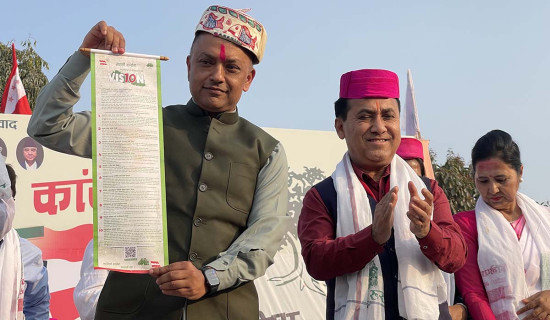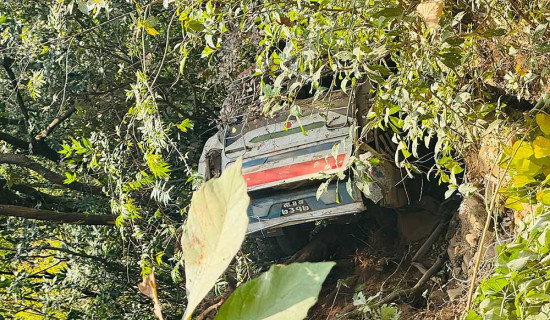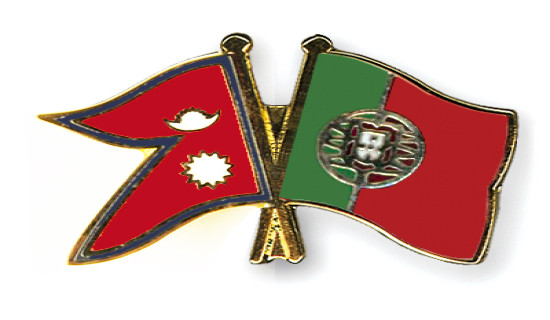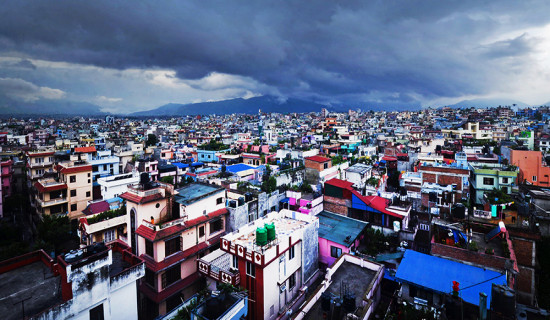- Thursday, 19 February 2026
A Canvas Of Life’s Struggle
Gandhi Raj Kafle , If life had been geometry, it would have an interpretively simple definition under the lesson of straight or not straight lines etc. But, life is not like this. So, the Bakrarekha here carries multi-dimensional meanings. And, unlike geometry, where learners enjoy the luxury of having textbooks and well-educated teachers or gurus to acquire systematic knowledge; life's textbooks and gurus are life only and it is unpredictable.
Jeevan ka Bakrarekha, or zigzag lines or paths of life, tells a lot. This is true for everyone. But here we have senior author and journalist Vijaya Chalise, who tells us how extensive and unpredictable it had been in the past. So, his under-review book entitled "Jeevanka Bakrarekha” is a creative attempt to describe his life's beauty, accepting all the virtues of Bakrarekha's ways of his past struggle.
This is a 312-page book and the author claims it is autobiographical writing. That is true, too, because he is the central point of the description. He has tried to surround so many themes that influenced him describing how they turned out to be effective to develop his personality. Somewhere in the context of this writing about his childhood or boyhood, the author has scantily mentioned about impacts of good feelings, especially about some challenges, which he felt with the privilege of being a son of a well-known literateur Ramesh Bikal (real name Rameswor Sharma). He says his father had no time to listen attentively to the details of family affairs as he was extremely busy with literary writings and activities of socio-political awareness. Yet he also fondly mentions that his father's care and inspiration are instrumental to him. Such things in biography writing are matters of importance and Chalise has written them nicely.
There comes a period for everyone when a mother gives berth and this very important arrival and a few years after this remain either unknown or if known it only remains in hazy forms.
Chalise has tried to express this part, too. He has entered into this with society's eyes because society holds the importance of perennial existence, and is helpful to guess even about unknown memories of childhood after berth.
It is said that the beauty of life lies in struggle and author Chalise has given due importance to describe this part. His struggle began right from the beginning of school education and it started to become hard since he aimed to acquire higher education. Not only this, but he also faced challenges to continue jobs and he had mentioned how strenuous it was to come and go from his residence, which was then popularly known as Kantha (Outskirts of Kathmandu city). Many of the 'Kantha', which our past generation described as uncivilised parts of Kathmandu, is now posh areas and they enjoy all the basic amenities of the city like convenient transportation, health facilities, and door-step schools and colleges, telephones and internet services. Past stories, however, were quite different. In this backdrop, Chalise is telling facts to his readers that the bus beyond Gaushala-Chabahil was unimaginable then and they had to go on foot to reach their homes.
This book entitled “Jeevanka Bakrarekha" (zigzag lines of life) is not exactly so, individually; it is the same nationally and politically also. We all know what happened to the nation in the past.
The people know the Rana regime, then the declaration of democracy in 1951 AD, then the general elections and formation of B.P. Koirala-led government and the coup against it, a series of struggles to restore democracy, the rise of the communist movement, the 2046 BS, the 2062-63 and until the declaration of the historic democratic republican constitution in the country.
Author Vijay Chalise’s background, as he has mentioned, is left-leaning. Being a book of autobiographical nature, he had mentioned its contexts to contexts. His association with the teaching profession and the media is long. He has written about how he joined Gorkhapatra daily as a sub-editor at the beginning and then served as the Corporation's executive chairman, which also shed light on the zigzag path of his life.
The book in the later chapters heavily enters into political events and interpretations.
But, the author has beautifully talked about people, who have mattered in his life. He has fondly remembered the Gorkhapatra’s noted editors like Bhairab Aryal, Keshab Raj Pindali, Narayan Bahadur Singh, Gokul Prasad Pokhrel and Bharat Dutta Koirala.
And, similarly, he has also not forgotten to note some of the bitter experiences of life also while serving the Corporation.
In essence, plenty of meritorious things is found in this book. Author Chalise has provided a deep focus on myths, cultures, local traditions and socio-economic dynamism of society beautifully while writing his self-memoir.
Similarly, he has also discussed political matters, somewhere briefly and somewhere in detail. In fact, facts are facts, but interpretations may differ. Yet, our experiences tell us: Politics is a dominant subject.









-original-thumb.jpg)
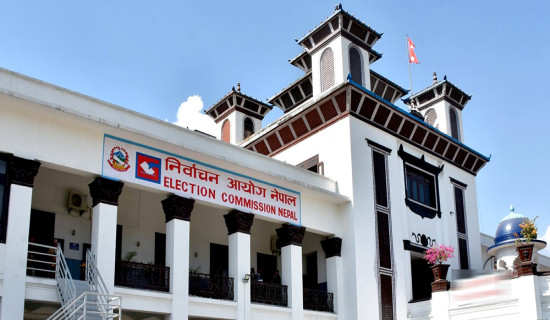
-original-thumb.jpg)

